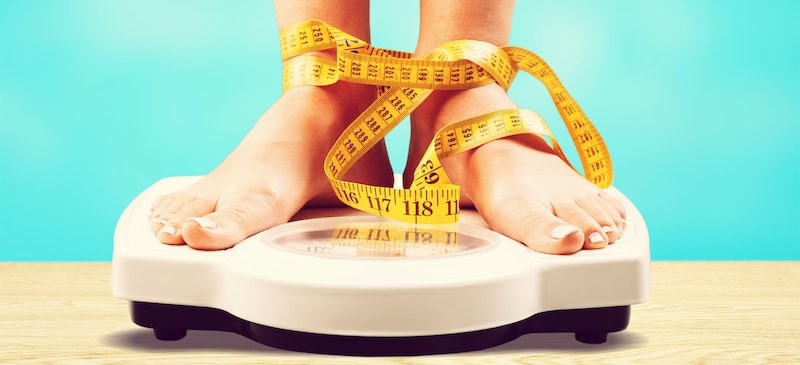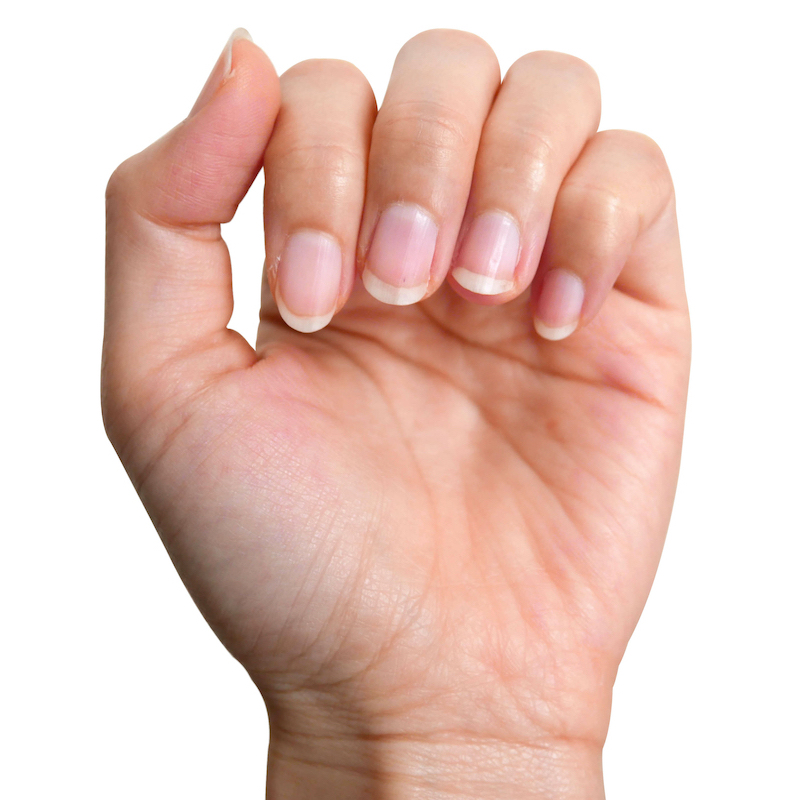This Dr. Axe content is medically reviewed or fact checked to ensure factually accurate information.
With strict editorial sourcing guidelines, we only link to academic research institutions, reputable media sites and, when research is available, medically peer-reviewed studies. Note that the numbers in parentheses (1, 2, etc.) are clickable links to these studies.
The information in our articles is NOT intended to replace a one-on-one relationship with a qualified health care professional and is not intended as medical advice.
This article is based on scientific evidence, written by experts and fact checked by our trained editorial staff. Note that the numbers in parentheses (1, 2, etc.) are clickable links to medically peer-reviewed studies.
Our team includes licensed nutritionists and dietitians, certified health education specialists, as well as certified strength and conditioning specialists, personal trainers and corrective exercise specialists. Our team aims to be not only thorough with its research, but also objective and unbiased.
The information in our articles is NOT intended to replace a one-on-one relationship with a qualified health care professional and is not intended as medical advice.
Why Am I Not Losing Weight? 30 Reasons You Might Be Struggling
February 27, 2025

Losing weight can be frustrating, especially when you feel like you’re doing everything right. If you’ve hit a weight loss plateau or aren’t seeing results, you’re likely wondering, “Why am I not losing weight?”
There may be underlying reasons preventing progress.
The following 30 reasons could be why you aren’t shedding those pounds. The good news is you can make changes to get your weight loss goals back on track.
What is a weight loss plateau?
Why am I not losing weight after making earlier progress? You may have hit the dreaded weight loss plateau.
A weight loss plateau occurs when you stop losing weight despite continuing your diet and exercise routine. This phase is common during weight loss journeys and can be frustrating, as progress seems to stall even though you’re following the same regimen that previously led to weight loss.
Several factors can contribute to a weight loss plateau, including:
- Metabolic adaptation. As you lose weight, your metabolism slows down because your body requires fewer calories to function. This reduced calorie burn can lead to a plateau.
- Loss of water weight. Initial weight loss is often due to water loss rather than fat loss. As this stabilizes, weight loss may slow down.
- Muscle loss. If you lose muscle along with fat, your resting metabolic rate decreases, making it harder to continue losing weight.
- Caloric intake adjustment. Over time, you may unconsciously eat more calories than needed, leading to stalled weight loss.
- Hormonal changes. Hormones like leptin, ghrelin and insulin can fluctuate during weight loss, affecting hunger, satiety,] and fat storage.
- Reduced physical activity. As your body adapts, the same workout routine may burn fewer calories than before.
- Increased efficiency. Your body becomes more efficient at performing the same exercises, requiring fewer calories, which can contribute to a plateau.
To break through a weight loss plateau, consider adjusting your diet, increasing physical activity, changing your workout routine, managing stress and ensuring adequate sleep.
Why am I not losing weight? (common reasons)
1. You’re eating more calories than you think
Even when eating healthy, consuming too many calories can prevent weight loss. Portion sizes can be deceiving, and hidden calories in dressings, oils and sauces can add up quickly.
A study published in the New England Journal of Medicine found that individuals struggling with weight loss underreported their calorie intake by an average of 47% and overestimated their physical activity by about 51%. This discrepancy led to stalled weight loss or even weight gain, despite participants believing they were in a calorie deficit.
Recommendation: Track your intake to ensure you’re in a calorie deficit. Use a food tracking app to monitor calorie intake (ensuring you include cooking oils, dressings and condiments), measure portions accurately and be mindful of liquid calories. Use a digital food scale to weigh portions instead of estimating.
Every few weeks, do a three- to five-day meticulous calorie tracking audit with a food scale to ensure accuracy. This will help recalibrate your awareness of portions.
You can also follow the “plate method” to help balance your meals. Fill half your plate with non-starchy vegetables, one-quarter with lean protein, and one-quarter with whole grains or healthy carbs to maintain portion control naturally.
2. You’re not eating enough protein
Protein boosts metabolism, reduces hunger and helps preserve muscle, which is essential for burning calories. A study published in the American Journal of Clinical Nutrition found that increasing dietary protein from 15% to 30% of total energy intake led to a sustained decrease in overall calorie consumption and significant weight loss among participants.
This suggests that inadequate protein consumption may prevent or stall weight loss by failing to promote satiety, leading to higher calorie intake.
Recommendation: Make sure you’re eating enough high-quality protein sources, like eggs, chicken and legumes. Aim for a protein intake of about 20% to 30% of total daily calories.
In addition, distribute protein intake evenly throughout the day. Consuming balanced amounts of protein at each meal supports muscle protein synthesis and may aid in fat mass reduction.
You should also combine protein intake with exercise. Engaging in regular exercise, particularly resistance training, alongside adequate protein consumption, helps preserve muscle mass during weight loss.
3. You’re not strength training
Cardio alone won’t maximize weight loss. Relying solely on cardio can lead to muscle loss, slowing down your metabolism.
Strength training helps build muscle, which increases your resting metabolic rate and helps burn more calories, and research has indicated that neglecting strength training can impede weight loss efforts.
A study conducted on obese women demonstrated that participants who combined resistance training with a caloric deficit preserved lean body mass, whereas those who only followed a diet experienced a loss in lean body weight. Maintaining muscle mass is crucial, as it sustains a higher resting metabolic rate, thereby facilitating continued weight loss.
Recommendation: Combine muscle-building workouts and strength training with aerobic exercise to maximize weight loss results. Incorporate resistance exercises at least two to three times per week, focusing on full-body workouts.
Develop a structured resistance training program. Aim for at least two to three sessions per week, allowing for adequate recovery between workouts, and focus on compound movements, such as squats, deadlifts, bench presses and rows, which engage multiple muscle groups.
Gradually increase the weight or resistance to continually challenge your muscles and promote growth.
Also incorporate aerobic activities like walking, cycling or swimming to enhance cardiovascular health and aid in fat loss. A combination of resistance and aerobic training has been shown to be effective in reducing body fat and improving overall fitness.
4. You’re not sleeping well
Lack of sleep disrupts hormones like ghrelin and leptin, increasing hunger and cravings. It especially can raise your cravings for high-calorie foods.
A study published in the Annals of Internal Medicine found that individuals on a calorie-restricted diet who experienced sleep deprivation lost less fat compared to those with adequate sleep, despite similar total weight loss. Specifically, sleep-deprived participants lost 55% less fat and reported increased hunger.
Another study demonstrated that acute sleep deprivation reduces leptin levels and increases ghrelin levels, hormones that regulate appetite and satiety. These hormonal changes can lead to increased appetite and potential weight gain.
Recommendation: Establish a bedtime routine, limit screen time before bed and aim for seven to nine hours of quality sleep each night. Go to bed and wake up at the same times daily, even on weekends.
It’s also a good idea to create a restful sleep environment. Keep your bedroom dark, quiet and cool, and limit exposure to screens and bright lights before bedtime.
You can also add nighttime relaxation to your routine by engaging in activities like reading, meditation, or gentle stretching before bed to help you wind down.
In addition, avoid consuming caffeine in the late afternoon and evening, and limit alcohol consumption, as it can disrupt sleep patterns.
5. You’re drinking too many calories
Sugary drinks, alcohol and even high-calorie smoothies can sabotage your weight loss efforts. Liquid calories from soda, juice and alcohol don’t provide satiety but add up quickly.
A study published in the American Journal of Clinical Nutrition found that reducing liquid calorie intake by 100 kcal per day was associated with a weight loss of 0.25 kg at 6 months and 0.24 kg at 18 months. This effect was more pronounced than reducing solid calorie intake.
Recommendation: Be mindful of your liquid calories. Drinks like coffee with cream/sugar, juices, alcohol and smoothies can contribute substantial calories that often go unnoticed.
Stick to water, herbal tea and black coffee. If you drink smoothies, ensure they are balanced with protein, fiber and healthy fats.
6. You’re not managing stress
Chronic stress increases cortisol, which can lead to weight gain, particularly around the belly. A study from 2019 found that stress can lead to overeating, particularly of high-calorie, high-fat and high-sugar foods, contributing to weight gain.
Recommendation: Practice stress management techniques, like meditation or yoga. Deep breathing, journaling and engaging in hobbies are other ways to help manage your stress levels.
Mindfulness-based stress reduction techniques like this have been shown to alter brain connectivity, potentially aiding in weight loss maintenance. Exercise also can reduce stress and improve mood, supporting weight management efforts, as can adequate sleep.
7. You’re not drinking enough water
Dehydration can slow metabolism and lead to unnecessary snacking. Research published in the Annals of Family Medicine found a significant association between inadequate hydration and elevated body mass index and obesity among U.S. adults.
This suggests that insufficient water consumption may be linked to higher body weight.
Recommendation: Aim to drink at least eight cups (two liters) of water per day, and increase intake if you exercise or live in a hot climate. Substitute sugar-sweetened beverages with water to reduce overall calorie intake, which may aid in weight loss.
You should also monitor your hydration status. For instance, check urine color as an indicator, as pale yellow suggests adequate hydration.
8. You’re eating too many processed foods
Even “healthy” packaged foods may contain hidden sugars and unhealthy fats, which in turn can make losing weight difficult. A study published in Cell Metabolism revealed that participants consuming ultra-processed diets increased their energy intake by approximately 500 calories per day, leading to significant weight gain over a two-week period.
Recommendation: Stick to whole, nutrient-dense foods, and avoid ultra-processed foods while limiting other processed foods. Plan and prepare meals at home to have better control over ingredients and cooking methods.
You should also read food labels carefully. Identify and limit products with long ingredient lists, especially those containing additives, preservatives, and high levels of added sugars or unhealthy fats.
Slowly replace processed foods with healthier alternatives to make sustainable changes. For example, swap sugary cereals for oatmeal, or replace processed snacks with nuts and fresh fruit.
9. You’re not getting enough fiber
Fiber helps keep you full and supports digestion. A review published in the Nutrition Reviews journal found that increasing fiber intake by 14 grams per day was associated with a 10% decrease in energy intake and an average weight loss of 1.9 kg over approximately 3.8 months.
This suggests that low fiber consumption may lead to increased calorie intake and weight gain.
Recommendation: Increase your intake of high-fiber foods, like vegetables, fruits, legumes and whole grains. Other fiber-rich foods include oats, beans, lentils and flaxseeds. These foods slow digestion and reduce overall calorie intake.
Aim for 25 to 30 grams of fiber per day, though a word of caution: Sudden increases in fiber can cause digestive discomfort. Slowly add fiber-rich foods to your diet to allow your digestive system to adjust.
Also make sure to stay hydrated. Adequate water intake helps fiber move through the digestive system, preventing constipation.
10. You’re not eating mindfully
Eating while distracted can lead to overeating. Turning to food for comfort rather than hunger can lead to overeating as well, which is why you want to avoid emotional eating.
A systematic review and meta-analysis published in Obesity Reviews found that mindfulness-based interventions are effective in reducing weight and improving obesity-related eating behaviors among individuals with overweight and obesity. This suggests that not practicing mindful eating may contribute to difficulties in managing weight.
Recommendation: Focus on your food, chew slowly and listen to your body’s hunger cues. It’s also a good idea to avoid eating in front of screens.
Practice mindful eating, identify emotional triggers and find non-food coping strategies, like journaling or exercise.
11. You’re not exercising enough or you’re exercising too much
Too little exercise hinders calorie burn, while excessive workouts or overtraining can increase stress hormones, leading to fat retention.
A 2018 study highlighted that while physical activity and exercise training are associated with reduced cardiovascular risk and improved cardiometabolic factors, they must be combined with a healthy diet to facilitate significant weight loss. The study emphasized that exercise alone, without dietary modifications, often leads to less weight loss than expected.
Engaging in high volumes of exercise without adequate rest can lead to overtraining, which may cause hormonal imbalances, increased cortisol levels and a decreased resting metabolic rate. These physiological changes can contribute to a weight loss plateau or even weight gain.
A review from 2019 discussed how metabolic adaptations and hormonal variations can impede continued weight loss, especially when the body is subjected to excessive physical stress without sufficient recovery.
Recommendation: Find a balance between cardio, strength training and active recovery, like yoga or walking. It’s also a good idea to re-evaluate your exercise routine and non-exercise activity thermogenesis.
Avoid overestimating exercise calorie burn. A fitness tracker can help, but don’t rely on its calorie estimates blindly.
Combine exercise with dietary modifications as well. Eat a balanced diet rich in whole foods, lean proteins, healthy fats and complex carbohydrates to complement your physical activity regimen.
You also want to establish a structured exercise routine. Aim for at least 150 minutes of moderate-intensity aerobic activity or 75 minutes of vigorous-intensity activity per week, supplemented with strength training exercises on two or more days per week.
Include a mix of cardiovascular exercises (e.g., walking, cycling) and resistance training to promote fat loss and muscle maintenance.
Lastly, prioritize rest and recovery. Ensure adequate rest days to allow the body to recover and prevent overtraining.
Listen to your body’s signals, and adjust exercise intensity and duration accordingly.
12. You have a medical condition
Conditions like hypothyroidism, PCOS and insulin resistance, among many others, can make weight loss harder. A comprehensive diagnostic approach is essential to identify underlying causes of obesity, including genetic factors, hormonal imbalances and metabolic disorders.
Early-onset obesity, dysmorphic features, congenital malformations, intellectual deficits, behavioral problems, hyperphagia and a significant family history may indicate genetic obesity.
Recommendation: Seek evaluation from a healthcare provider to identify potential medical conditions affecting weight loss, and undergo appropriate diagnostic tests to determine underlying causes.
Develop a tailored weight loss strategy addressing specific medical issues. Incorporate lifestyle modifications, dietary changes, and if necessary, medical or surgical interventions.
13. Your gut health is out of balance
An unhealthy gut microbiome can affect metabolism and fat storage. A study published in 2022 relayed that increased weight loss is associated with higher gut microbiota diversity and reduced intestinal permeability.
Additionally, a review in Nature Reviews Endocrinology highlighted that the gut microbiota influence body weight by modulating metabolism, appetite and the immune system.
Recommendation: Eat fermented foods, take probiotics and prebiotics, and consume fiber-rich foods to support gut bacteria and improve gut health. Eating a variety of foods can promote a diverse microbiome as well, which is associated with better weight management.
Furthermore, reducing intake of processed foods and sugars can prevent the proliferation of harmful gut bacteria linked to weight gain.
14. You’re eating too late at night
Late-night snacking, especially on high-calorie foods, can disrupt weight loss. A study published in the American Journal of Clinical Nutrition found that late eaters exhibited slower weight loss rates and reduced total weight loss compared to early eaters during a weight loss program.
Further research in the Journal of Clinical Endocrinology & Metabolism demonstrated that late-night eating negatively affects glucose tolerance and reduces the amount of fat oxidized overnight, potentially leading to weight gain.
Recommendation: Try to finish eating at least two to three hours before bed, and opt for light, protein-rich snacks if necessary.
You also should try to align meals with circadian rhythms. For example, aim to consume your evening meal between 5 p.m. and 7 p.m. to synchronize with the body’s natural metabolic peak, enhancing digestion and calorie utilization.
Maintain regular meal times throughout the day to support metabolic processes and prevent late-night hunger, and plan for balanced evening meals.
Include a mix of lean proteins, healthy fats and complex carbohydrates to promote satiety and prevent late-night snacking. Be mindful of portion sizes to avoid overeating during the evening hours as well.
15. You’re relying too much on “diet” foods
Low-fat and sugar-free foods often contain artificial ingredients that can spike cravings and slow metabolism.
Recommendation: Instead of searching for foods marketed as “diet” or “light,” eat more real, whole foods in their natural states.
16. You’re not moving enough throughout the day
Even if you work out, sitting too much can slow metabolism. A study published in 2015 found that each additional hour of daily sedentary time was associated with an increase in body mass index and poorer weight loss maintenance among women, even for those with high levels of physical activity.
Recommendation: Incorporate movement like walking and stretching throughout your day. Take more breaks, stand more often (perhaps even use a standing desk) and move your body more throughout the day.
Moving around every 30 minutes can help counteract the effects of prolonged sitting, and using the stairs over the elevator can help you increase physical activity, as can walking meetings, using a walking pad while working and more.
17. You’re skipping meals
Skipping meals can lead to overeating later and slow metabolism. Research has shown that skipping meals, particularly dinner, is associated with increased energy intake at subsequent meals and poorer diet quality.
Recommendation: Eat balanced meals with protein, fiber and healthy fats throughout the day, and maintain regular meal patterns. Aim to eat meals at regular intervals throughout the day to support metabolic stability.
Prepare meals in advance to reduce the temptation to skip meals due to time constraints, and keep nutritious snacks available to prevent impulsive, less healthy choices.
18. You’re eating out too often
Restaurant meals often have hidden calories, unhealthy fats and excess sodium. A systematic review from 2012 reported that eating outside the home is associated with higher energy intake, which may contribute to weight gain.
Recommendation: Cooking at home helps control ingredients and portions. When you do go out, choose healthier options based on the ingredients, and if you aren’t quite sure what’s in a dish, don’t be afraid to ask your server.
Here are some more tips for dining out healthily:
- Before dining out, check the restaurant’s menu online to identify healthier options. Decide on your meal choices in advance to avoid impulsive decisions.
- Choose dishes that are grilled, baked or steamed rather than fried.
- Ask for dressings and sauces on the side, and substitute high-calorie sides with vegetables or salads.
- Consider sharing entrées or appetizers to reduce calorie intake.
- Ask for a to-go box at the beginning of the meal to portion out half of your meal for later.
- Choose water, unsweetened iced tea or other low-calorie beverages over alcohol and sugary drinks.
19. You’re drinking too much alcohol
Alcohol adds empty calories and can slow metabolism. A systematic review published in 2011 found that alcohol intake is positively associated with weight gain, particularly when consumed in large quantities.
Recommendation: Limit intake, and opt for lower-calorie choices, like dry wine or clear spirits, if you are going to drink. Adhere to guidelines recommending no more than one drink per day for women and two for men.
Avoid drinking on an empty stomach too. Eating before or while drinking can slow alcohol absorption and reduce its impact on appetite.
It’s also vital to stay hydrated. Alternate alcoholic beverages with water to maintain hydration and reduce overall calorie intake.
20. You’re not getting enough healthy fats
Healthy fats from sources like avocados, nuts and olive oil support hormone balance and satiety. Researchers have found low-fat diets may not be as effective for weight loss as higher-fat diets, suggesting that dietary fat intake can influence weight management.
Recommendation: Don’t be afraid to include them in moderation. Eat unsaturated fats like avocados, nuts, seeds and olive oil in moderation.
Extremely low-fat diets may lead to nutrient deficiencies and are not recommended for sustainable weight loss, but while healthy fats are beneficial, consume them in moderation to maintain a balanced calorie intake.
Also be mindful of caloric density and portion sizes. For example, nuts and seeds are calorie-dense. Consume them in appropriate portions to avoid excessive calorie intake.
Utilize measuring cups or a food scale to ensure accurate portion sizes.
21. Your hormones are out of balance
Hormonal imbalances, including estrogen dominance and adrenal dysfunction, can contribute to weight gain. They can significantly impede weight loss by affecting appetite regulation, metabolism and fat storage.
For instance, alterations in hormones such as leptin, ghrelin, insulin and cortisol can disrupt energy balance and promote weight gain. A review published in the Journal of Nutrition and Metabolism discussed how various hormones, including leptin and ghrelin, influence appetite and energy homeostasis, which are crucial for weight management.
Recommendation: Seek professional guidance if needed, and work on balancing hormones naturally by eating healthy, hormone-balancing foods.
Get an evaluation from an endocrinologist to identify specific hormonal imbalances. Then develop a treatment plan tailored to your hormonal profile.
Eating a balanced diet, exercising regularly, limiting stress and other lifestyle changes can help. Implement gradual changes to diet and exercise routines to support sustainable weight loss and hormonal health.
In addition, schedule periodic health assessments to monitor hormone levels, and adjust interventions as needed.
22. You’re not tracking progress accurately
Weight fluctuates due to factors like water retention. Accurate self-monitoring is crucial for effective weight loss, as it enables individuals to track progress, identify patterns, and make necessary adjustments to their diet and exercise routines.
Research has confirmed that consistent and accurate tracking is associated with better weight loss outcomes. For example, an in-depth analysis found that participants who weighed themselves more frequently experienced greater weight loss.
Specifically, those who self-weighed at least three times per week had a higher likelihood of achieving clinically significant weight loss compared to those who weighed themselves less frequently.
Other studies also have highlighted that consistent adherence to dietary tracking, such as using food diaries or mobile apps, is positively correlated with weight loss. Participants who regularly logged their food intake lost more weight than those who did not maintain consistent tracking.
Recommendation: Instead of relying only on the scale, track body measurements, notice how your clothes fit and keep up with progress photos.
Employ apps designed for weight loss that offer features like barcode scanning, meal logging and progress tracking to simplify the monitoring process. Consider using fitness trackers to monitor physical activity and integrate this data with dietary tracking for a comprehensive view of your weight loss journey.
Incorporate daily self-weighing and food logging into your routine to establish consistency and promptly identify any deviations from your goals. Use reminders or alarms to prompt regular tracking, ensuring it becomes a habitual part of your day.
Weigh yourself at the same time each day, preferably in the morning after using the restroom and before eating, to maintain consistency.
Use measuring cups, spoons or a food scale to accurately portion your meals, reducing the likelihood of underestimating calorie intake.
Regularly review your tracking data to identify trends, such as times when overeating occurs or periods of inactivity, and adjust your strategies accordingly.
23. You’re lacking accountability
Having support, whether from a friend, coach or online community, helps keep you consistent and motivated. Conversely, lacking accountability can significantly hinder weight loss efforts by reducing motivation and adherence to healthy behaviors.
Research has confirmed that individuals without external accountability often face challenges in maintaining consistent dietary and exercise habits, leading to stalled or unsuccessful weight loss.
A qualitative study identified a lack of accountability as a significant barrier to weight loss among individuals with obesity. Participants reported that without external support or monitoring, maintaining motivation and adhering to weight loss plans became challenging.
Meanwhile, a review of medical weight loss programs highlighted that incorporating accountability measures, such as social and professional support, planning, and regular follow-ups, enhanced adherence and improved weight loss outcomes. These accountability frameworks help individuals stay committed to their weight loss goals.
Recommendation: Join a class or exercise group. Pair up with a workout buddy to hold each other accountable, or work with a personal trainer who helps you set a consistent schedule.
Here are some more ideas if you’re wondering why am I not losing weight while lacking social support:
- Participate in local or online support groups where members share experiences, challenges and successes, fostering a sense of community and mutual accountability.
- Work with healthcare providers, such as dietitians or fitness trainers, who can offer personalized advice and monitor your progress.
- Plan periodic check-ins with a healthcare professional or support group to review progress, discuss challenges and adjust strategies as needed.
24. You’re not getting enough sunlight
Vitamin D deficiency has been linked to weight gain and difficulty losing fat. Insufficient sunlight exposure can impede weight loss by affecting vitamin D levels and influencing fat cell behavior.
Research has shown that inadequate sunlight may promote fat storage and contribute to weight gain.
Recommendation: Spend time outside in the sunlight. Aim for 10 to 30 minutes of sunlight exposure on your face, arms and legs several times a week, preferably between 10 a.m. and 3 p.m., when UVB rays are most intense.
In northern latitudes or during winter months, sunlight exposure may be limited. In such cases, consider using a light therapy box designed to mimic natural sunlight.
In addition, incorporate foods rich in vitamin D, such as fatty fish (e.g., salmon, mackerel), fortified dairy products and egg yolks. If sunlight exposure is insufficient, consider vitamin D supplementation to maintain optimal levels.
25. You’re expecting instant results
Expecting instant results can hinder weight loss progress by fostering unrealistic expectations and promoting unsustainable behaviors, and research has found that rapid weight loss methods often lead to weight regain and may negatively impact metabolic health.
For instance, one study found that high-carbohydrate, low-fat diets, which are sometimes associated with quick weight loss claims, can increase postprandial hyperglycemia and hyperinsulinemia, potentially hindering long-term weight control.
Weight loss is a long-term journey. If you’re making consistent healthy choices, trust the process and be patient.
Recommendation: Don’t try to rush the process. Be patient and disciplined, as there will be some ups and downs.
The most important thing is living a healthier life, which in turn will help you maintain a healthy weight. Set realistic goals, and focus on sustainable habits.
To address this, it’s recommended to adopt a gradual and sustainable approach to weight loss. Setting realistic goals, such as aiming for a weight loss of one to two pounds per week, can help maintain motivation and promote long-term success.
Additionally, focusing on nutrient-dense foods and incorporating regular physical activity can support overall health and facilitate steady weight loss. A study from 2021 emphasized the importance of combining diet and exercise interventions for effective weight management.
26. You’re consuming too much sugar
Excess sugar leads to insulin spikes and fat storage, and it can impede weight loss by contributing to increased calorie intake and promoting fat accumulation. A systematic review published in Obesity Reviews concluded that reducing sugar-sweetened beverage (SSB) consumption significantly decreases weight gain and adiposity in children and adolescents, thereby lowering the risk of obesity and related diseases such as type 2 diabetes.
Additionally, a meta-analysis in the American Journal of Clinical Nutrition found that increased intake of added sugars and SSBs is associated with greater weight gain in the first six months postpartum.
Recommendation: Reduce added sugars and artificial sweeteners, and opt for natural sweeteners in moderation. Researchers have observed that reducing dietary sugar intake is associated with a decrease in body weight, while increased sugar intake is linked to weight gain.
27. You’re eating too many simple carbs
Refined carbs like white bread and pastries cause blood sugar crashes, leading to cravings and overeating. In fact, research has found that diets high in simple carbohydrates are associated with greater weight gain and increased risk of obesity.
Recommendation: Replace simple carbohydrates with complex carbohydrates, which are digested more slowly and provide sustained energy. Incorporating whole grains like oats into your diet can be beneficial.
28. You’re snacking too often
Frequent snacking, especially on unhealthy foods, can increase calorie intake and promote overeating, and studies have found that snacking is associated with greater energy intake, which can lead to weight gain if not managed properly.
Recommendation: Stick to balanced meals to keep hunger in check. Try to eat structured meals at roughly the same times daily, and choose high-protein, fiber-rich snacks if needed.
A good recommendation is to adopt a structured eating pattern that includes three balanced meals and two snacks per day. This approach can help control hunger, prevent overeating and support weight loss efforts.
Choosing nutrient-dense snacks that are high in protein and fiber can promote satiety and help regulate calorie intake. For example, incorporating anti-inflammatory snacks like energy balls made with dried tart cherries, almonds, oats, yogurt, dark chocolate and cinnamon can provide essential nutrients and support weight loss.
29. You’re ignoring supplements
Certain supplements, like omega-3s, vitamin D and probiotics, can support weight loss by improving metabolism and digestion. Neglecting essential nutrients can impede weight loss by affecting metabolism, energy levels and overall health.
For example, vitamin D deficiency has been linked to obesity, and correcting this deficiency may support weight loss efforts. One study found that vitamin D supplementation, combined with a weight loss diet, resulted in decreased weight, fat mass and inflammatory markers in obese individuals with vitamin D deficiency.
Similarly, bariatric surgery patients are at risk for nutritional deficiencies, including vitamins and minerals, which can affect weight loss and overall health. Deficiencies in nutrients like iron, vitamin B12 and vitamin D are common after such procedures.
Recommendation: Looks for high-quality thermogenic supplements, natural appetite suppressants and other metabolism boosters. Supplements like omega-3s, vitamin D and probiotics can help.
Ensure adequate intake of essential nutrients through a balanced diet and, if necessary, supplementation. A registered dietitian can provide personalized guidance based on your health status and dietary habits.
30. You’re not doing enough real cardio
While strength training is essential, cardio helps burn extra calories. On the other hand, engaging in insufficient cardiovascular exercise can impede weight loss by limiting calorie expenditure and reducing metabolic rate.
While moderate physical activity (150 minutes per week) can improve cardiovascular health, it may be inadequate for significant weight loss without concurrent caloric restriction, according to scientific studies.
Recommendation: Incorporate a mix of HIIT and steady-state cardio for best results. It’s recommended to increase aerobic exercise to at least 150 minutes per week. This level of activity has been associated with clinically important reductions in waist circumference and body fat.
Incorporating high-intensity interval training (HIIT) can further boost calorie burn and improve metabolic health. HIIT involves short bursts of intense exercise followed by rest periods and has been shown to be effective in reducing fat mass and improving cardiovascular fitness.
Combining regular aerobic exercise with a balanced diet and strength training can optimize weight loss and overall health. Strength training builds muscle mass, which increases resting metabolic rate and supports long-term weight management.
Conclusion
If you’re wondering, “Why am I not losing weight?” one (or more) of these reasons may be holding you back. Identify where adjustments are needed, and make gradual changes to get back on track.












